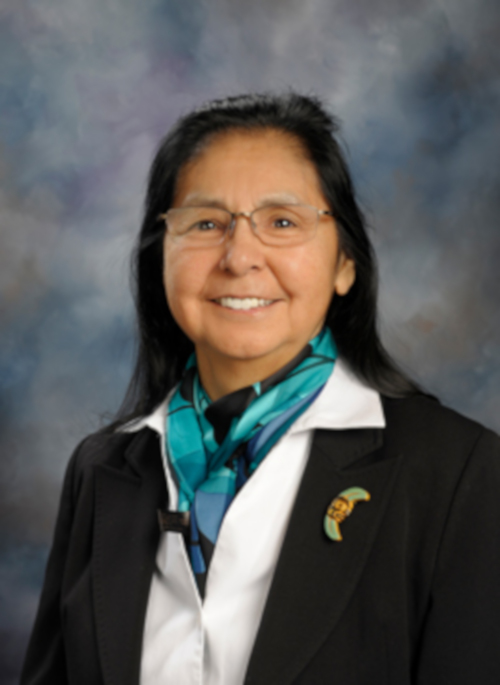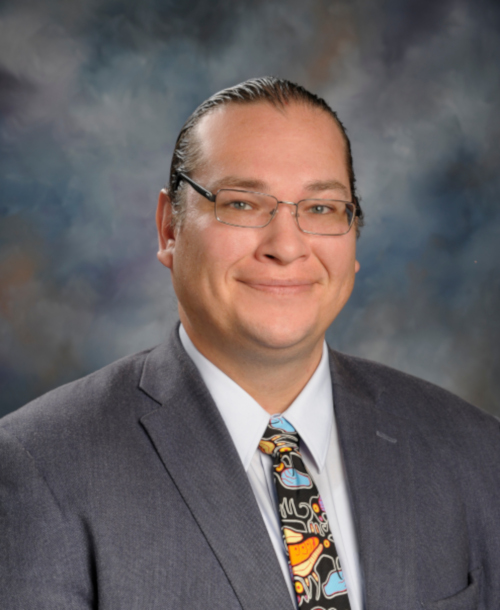
Professor Nancy Sandy will serve as the Director of Lakehead's new Indigenous Law and Justice Institute.
Lakehead University's Bora Laskin Faculty of Law will receive up to $437,139 to launch an Indigenous Law and Justice Institute, the Maamawi Bimosewag - They Walk Together, and expand the law program, thanks to the Justice Partnership and Innovation Program offered by Canada's Department of Justice.
Starting April 1, the Indigenous Law and Justice Institute will advance community collaboration and curriculum innovation in Indigenous law at the Bora Laskin Faculty of Law.
Bora Laskin Faculty of Law Dean Jula Hughes said she is excited to oversee the project with guidance from the Anishinawbe Omaa Minowaywin, the law school's Indigenous advisory council. She is pleased to announce Professor Nancy Sandy as Director of the Indigenous Law and Justice Institute.
"The Indigenous Law and Justice Institute is an expression of the commitment of the Bora Laskin Faculty of Law to be a partner in the revitalization of Indigenous laws," Dean Hughes said.
"We are so grateful to the Indigenous communities and organizations who are working with us. We want to also thank the federal Department of Justice for making the Institute possible," she said.

Robin Sutherland, the Bora Laskin Faculty of Law's Director of Indigenous Relations, said this is an exceptional opportunity for the Faculty to engage even more with Indigenous communities and organizations, to revitalize laws, develop curriculum and broaden research.
"It is also a recognition of our unique position in the legal education landscape as a northern law school committed to Indigenous peoples, lands and interests, and we thank the Department of Justice, Lakehead University and the Indigenous partners that continue to support us," he said.

This funding allows Lakehead University to meet call to action #50 in the Truth and Reconciliation report, collaborating with the federal government to establish an Indigenous law institute for the development, use, and understanding of Indigenous laws and access to justice in accordance with the unique cultures of Aboriginal peoples in Canada.
The first pillar of the Institute's work will be building and sustaining relationships. It will work with current and future Indigenous partner communities and organizations to build capacity within the Indigenous Law and Justice Institute as well as in Indigenous communities towards the revitalization of Anishinaabe and Métis law.
Land-based learning forms the second pillar of the Institute's work. The Institute will lead curriculum development and delivery of a law camp that will engage faculty and community in Indigenous land law.
This camp will include Indigenous law revitalization, restatement and codification methodologies, awareness of Indigenous political and service organizations and cultural competencies for effective and ethical lawyering on behalf of Indigenous people, communities and organizations.
The third pillar of the Institute will foster a lively research environment for students, community-based researchers and faculty in the area of Indigenous law. The Institute will build on the Bora Laskin Faculty of Law's existing Indigenous law conference to bring together community leaders and members, knowledge keepers, scholars and students.
The Institute will train students to conduct interviews with Elders and knowledge keepers. By developing and applying grounded methodologies, the Institute will investigate treaty history and practice, conduct community-based workshops, and document Anishinaabe and Métis law, legal principles and processes in culturally-appropriate and community-accessible ways.
The Bora Laskin Faculty of Law is committed to making a difference by providing access to justice, and leading the way for northern communities.
By offering legal education with a triple mandate in Aboriginal and Indigenous Law, Natural Resources and Environmental Law, and Sole/Small Town Practice with the Integrated Practice Curriculum (IPC), its curriculum provides students with a legal education that will prepare them to practice law in Northern Ontario and Canada while understanding the issues pertinent to the land and peoples of this region.
A big thank you (miigwech) to the existing Indigenous partner communities and organizations, without whose support this project would not be possible: Anishinabek Nation, Fort William First Nation, Grand Council Treaty #3, the Métis Nation of Ontario, the Nishnawbe Aski Nation and the Chiefs of Ontario.









